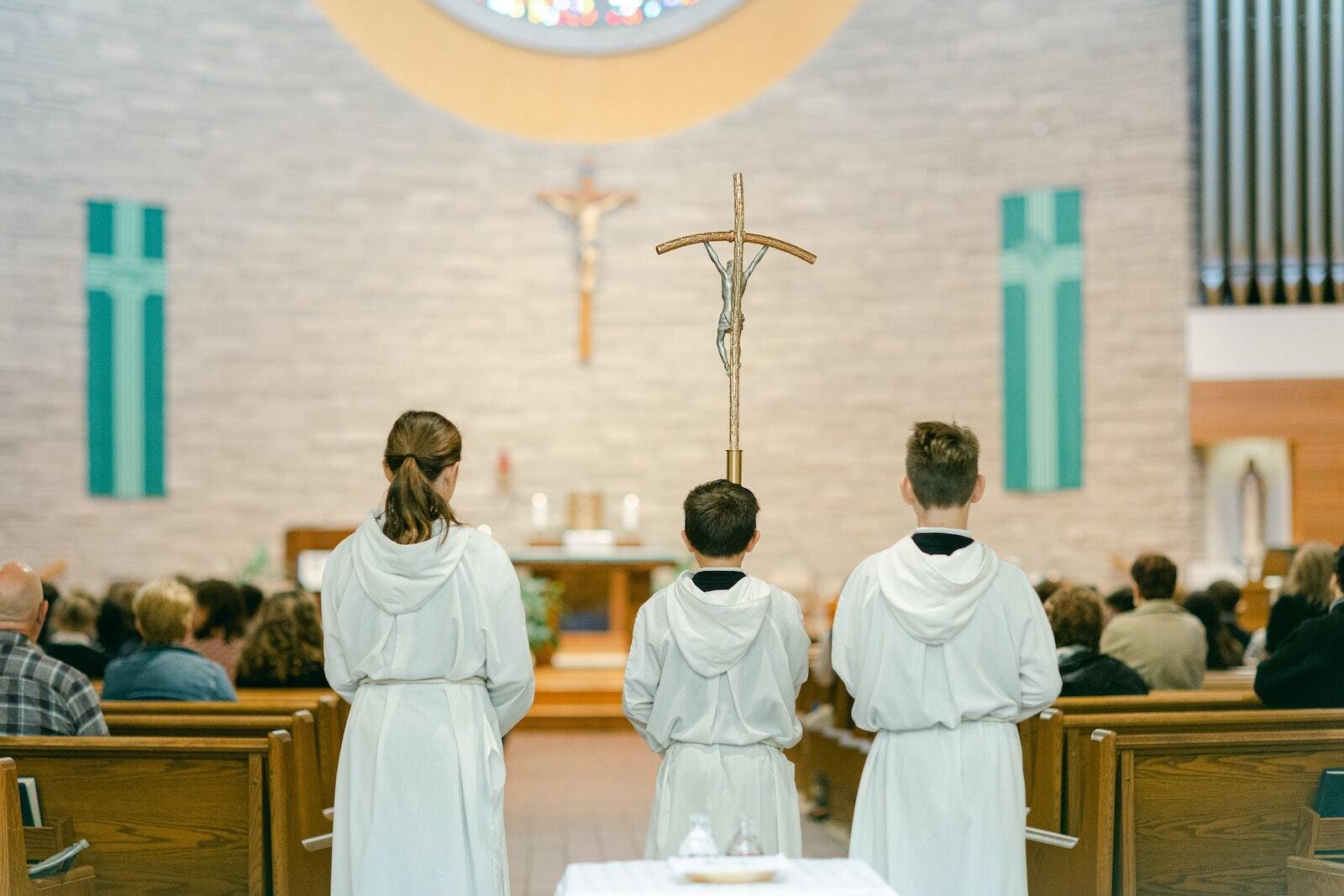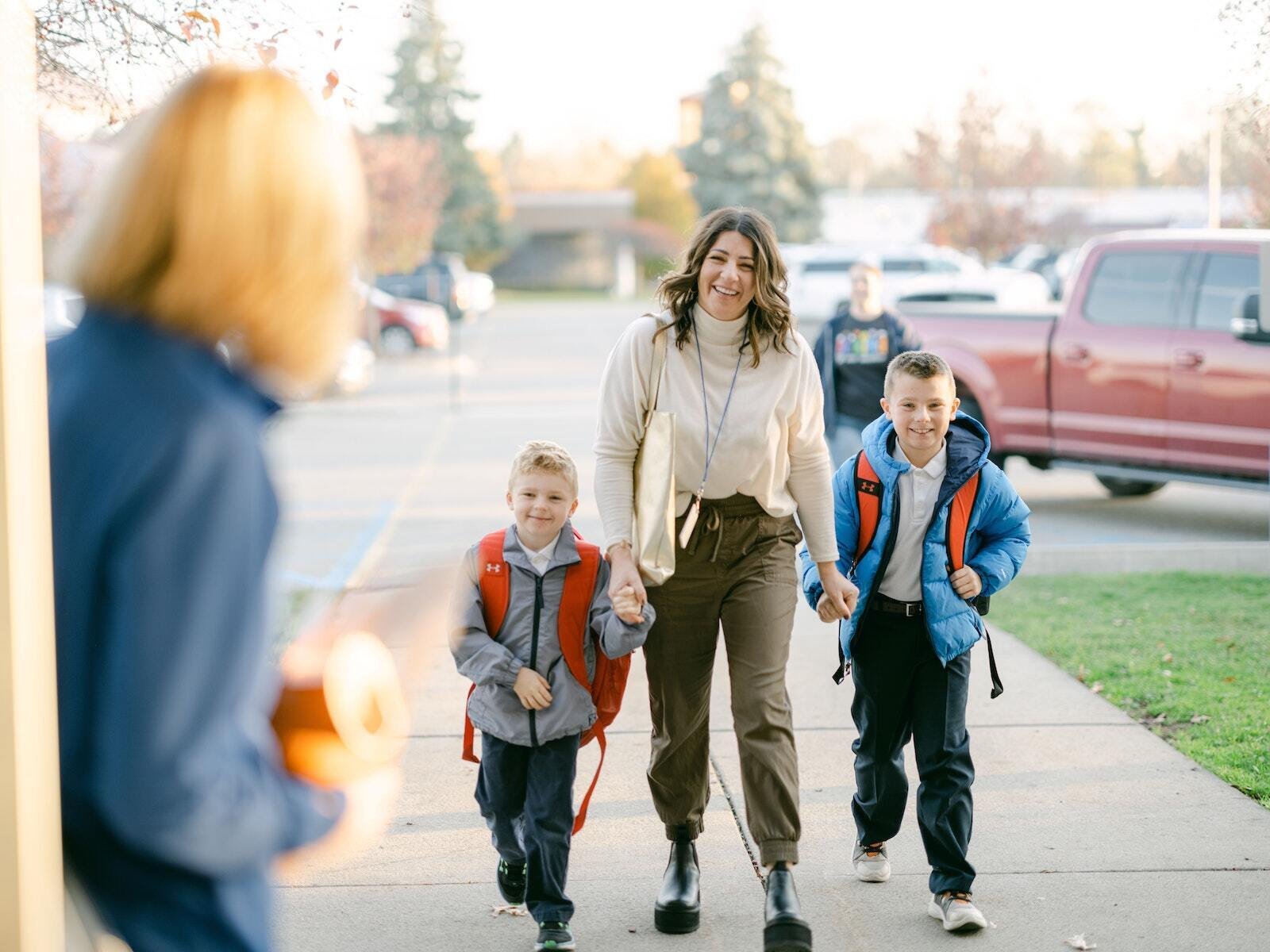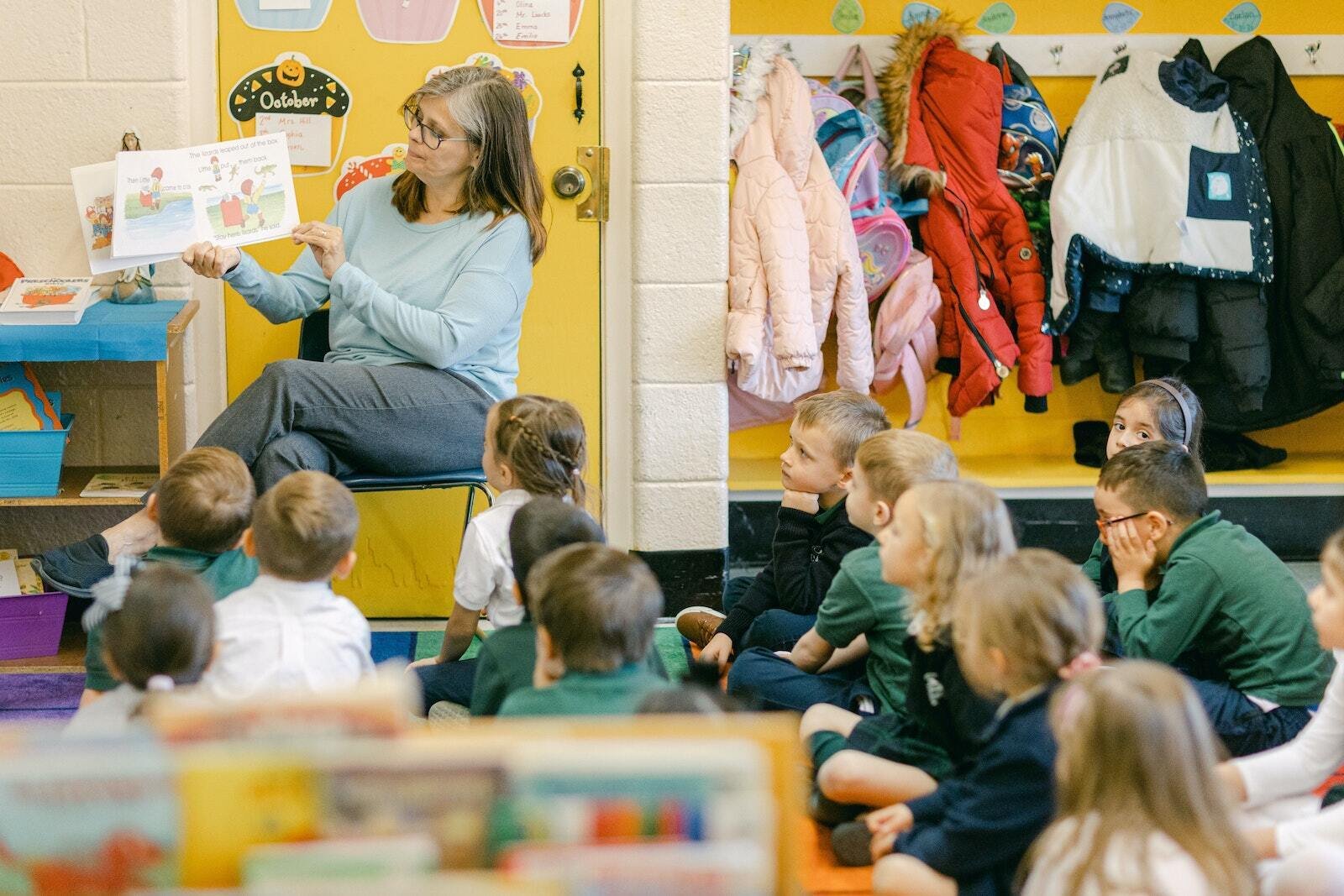Principals cite parents' outreach, in-person instruction following COVID-19 as key factors contributing to modest growth
DETROIT — Enrollment in Catholic schools in the Archdiocese of Detroit continues to be strong in the years following the COVID-19 pandemic, new figures reported by the archdiocese show.
A total of 27,349 young souls are being formed in approximately 80 archdiocesan and independent Catholic schools this academic year, a 179-student increase from last year, according to the Archdiocese of Detroit’s Office of Catholic Schools.
The modest gain — a 0.3% increase compared to last year — is part of a wider trend in the archdiocese, which has seen a 3.7% increase over the past four years as more families explored Catholic schools as an option amidst COVID-related shutdowns of in-person learning at some surrounding schools.
Don't miss another story
Did you know you can get Detroit Catholic's latest daily or weekly articles delivered to your inbox? It's easy and free to sign up.
Laura Knaus, superintendent of Catholic schools for the Archdiocese of Detroit, said Catholic schools have been successful in retaining families who explored Catholic schools for the first time during the pandemic.
“What we have found is many of the families who came to us for that opportunity have stayed with us, and we have also attracted new families as well,” Knaus told Detroit Catholic. “We have seen a growth in particular areas of the archdiocese of families exploring the possibility of Catholic schools for the first time.”
Knaus said the growth comes from both Catholic and non-Catholic families who used the shift in the education situation amidst the pandemic to evaluate what they were looking for in their children’s education and found a solution in Catholic schools.

“I think families have seen our Catholic schools and the excellent formation and education that we provide more closely aligns with what they want for their children,” Knaus said. “They see our schools have the opportunity that not all types of education allow for them to participate in: faith activities, religion classes, a culture of faith in the school. We see a growing interest in an environment they might not have an opportunity to be involved in the public sector.”
Catholic schools in Oakland County saw the biggest enrollment increase in the archdiocese — an 11.9% increase — but Knaus said enrollment increases are better understood on a school-by-school basis, particularly among schools with engaged parents, whom Knaus said are Catholic schools’ greatest spokespeople.
“We don’t want our schools to be a secret; we want to share what we are doing in the parish and in the community,” Knaus said. “We want there to be an understanding of the good work Catholic schools are doing, sharing the success of our schools and celebrating those successes. We remain open to serving new families, too, building strong relationships between families and the school communities, inviting them to see what the possibilities are.”
Our Lady of the Lakes School in Waterford, a K-12 parochial school, has seen a bigger increase in enrollment over the last three years, according to Jared Kullman, director of school operations and assistant principal at Our Lady of the Lakes. The school now boasts two classrooms each for kindergarten through fourth grade, a “very full” fifth grade, and pre-kindergarten enrollment of 69.
Kullman said the increased enrollment is coupled with a family retention rate above 90% from year to year, meaning when families walk into the doors of Our Lady of the Lakes, they are hesitant to leave.
“In the end, if you have a good product, people are going to want to be part of it,” Kullman said. “We have been very diligent about having what we say in our mission statement. We have Catholic tradition, personal discipline and academic excellence as our focus. And we have a strong community focused on academics, focused on faith, and focused on growing these kids holistically.”
Kullman remembers the school receiving a flurry of phone calls in the summer of 2020, with prospective families inquiring about Our Lady of the Lakes’ plans for the upcoming academic year: Would there be in-person instruction? Is there still room in the school? How can families make Catholic education affordable?

“I can remember very distinctly a lot of moments from 2020 and 2021, when things were changing in the landscape of education in Michigan; we were at crossroads at various points, our phones were ringing, inboxes were full,” Kullman said. “We knew we had an opportunity to grow as a school, but we wanted to do it responsibly.
“If you have 30 kids and one teacher in the classroom and two classrooms per grade level, that is 60 kids in a grade, and that can get out of hand quickly,” Kullman said. “So we wanted to make sure we were growing in the right way — to get bigger, add families through great relationships in the community, but not at the expense of our relationships with our kids and our parents.”
COVID shutdowns spurred parents to explore Catholic school education, but in-person learning and promises of smaller class sizes don’t remove the financial obstacles some families face when choosing Catholic education.
The Archdiocese of Detroit has need-based scholarships for Catholic and non-Catholic families, and scholarships and grants through the Catholic Foundation of Michigan and other school- and parish-based funds help families makes Catholic education more affordable, Knaus said.
“I would encourage any family who is interested in a Catholic education, but is concerned about the costs, to explore with their Catholic school what the options are for financial aid,” Knaus said. “We have an archdiocesan financial aid tuition assistance program that is needs-based. We have a third-party analysis of the family’s income to determine what type of financial aid we can give to help with tuition costs.”
In his pastoral letter, Unleash the Gospel, Detroit Archbishop Allen H. Vigneron wrote the responsibility of promoting Catholic education lies with every parish and family in the Archdiocese of Detroit, regardless of whether a parish has a school or a family has children currently attending Catholic schools.
Beyond the financial commitments, there are also particular necessities when it comes to educating children with special needs and equipping Catholic schools with the resources to make itself academically and developmentally accessible to all students, particularly through a grant process with the Catholic Foundation of Michigan.

“We’ve been working on making sure our schools are academically accessible as well,” Knaus said. “We have a variety of learners with different types of academic needs in our schools, so we’re working on ensuring all students of academic needs are able to be served in our Catholic schools. We still have progress that needs to be made, but it’s an area we are working on.”
Immaculate Conception School in Ira Township has seen a modest 17-student increase this academic year and an average year-to year retention rate above 80% since 2020-21.
Principal Lawrence Ricard attributes the modest growth to the fact the school opened for in-person instruction during the fall of 2020 and working with parishes throughout the Blue Water Vicariate in St. Clair County.
“We had all our ducks in a row with a plan, and because of the struggles of other local schools, families wanted that in-person security and in-person contact education,” Ricard said. “That garnished a good, positive influx of individuals. Moving forward to the year 2021-22 and so forth, we saw more and more growth, because more and more parents were advertising for us, spreading the word.”
Ricard said the small classes sizes at Immaculate Conception, averaging 18-19 students per class, have been especially attractive for families used to larger class sizes in the public school system, along with an authentically Catholic education that has drawn in families who previously homeschooled.
Those dual factors are what Ricard draws upon as best practices for Catholic schools across the archdiocese to draw upon to build a solid foundation to spur potential growth.
“Most families, if not all, are looking for a solid education, smaller classroom sizes, and regular follow-through with discipline,” Ricard said. “They are looking to get away from ... what they don’t necessarily agree with about the curriculum other schools follow.”

Immaculate Conception emphasizes developing relationships with families new to the school, getting them involved in volunteer opportunities and outreach events and displaying how Immaculate Conception can be a community built around lifelong relationships.
“We have parent liaisons on our parent-teacher committee who are responsible for connecting with the classroom liaisons. Newer families can reach out to those contacts about what’s coming up,” Ricard said. “We communicate via texts through our parent-alert system, making sure our parents are very aware of what’s going on and that they are invited to X, Y and Z. Communication is a top priority, especially with new parents in the community.”
Along with maintaining good relationships, Knaus added schools who maintain contact with alumni and former families tend to have better results with outreach and student retention from year to year.
Knaus shirks when she hears how Catholic schools are a “well-kept secret,” noting the success of a Catholic school depends on the entire parish community to share about and support the school through financial contributions, volunteering and being ambassadors in the public square.
“I think for everyone in the Church, hearing we have an increase in enrollment in Catholic schools should give us hope,” Knaus said. “Our Catholic schools are places of formation, and we have a real opportunity to share Jesus in the Catholic faith through our schools. Anytime there is an increase in the number of students hearing the Gospel, that is a really positive thing for the children, the family and the Church.”
In order to maintain the momentum, Knaus said, it will take a change of mindset for Catholics in the area not to see Catholic schools as merely purveyors of traditions of the past or as the responsibility of parishes or parents who pay to educate their children, but as the responsibility of every parishioner, parish, alumnus and donor to evangelize today by teaching the saints of tomorrow.
“Because our Catholic worldview and our Catholic culture is counter to the secular world in so many ways, there are many challenges that come with ensuring Catholic schools are vibrant and operationally efficient,” Knaus said. “We need to understand the role the youth have in the Church today, and that is an opportunity for everyone, whether you have children or don’t have children or never had any association with a Catholic school. We as the people of God need to see the importance of what this ministry brings to the Church and how it benefits the whole Church.”
Copy Permalink
Catholic schools












